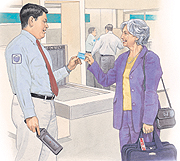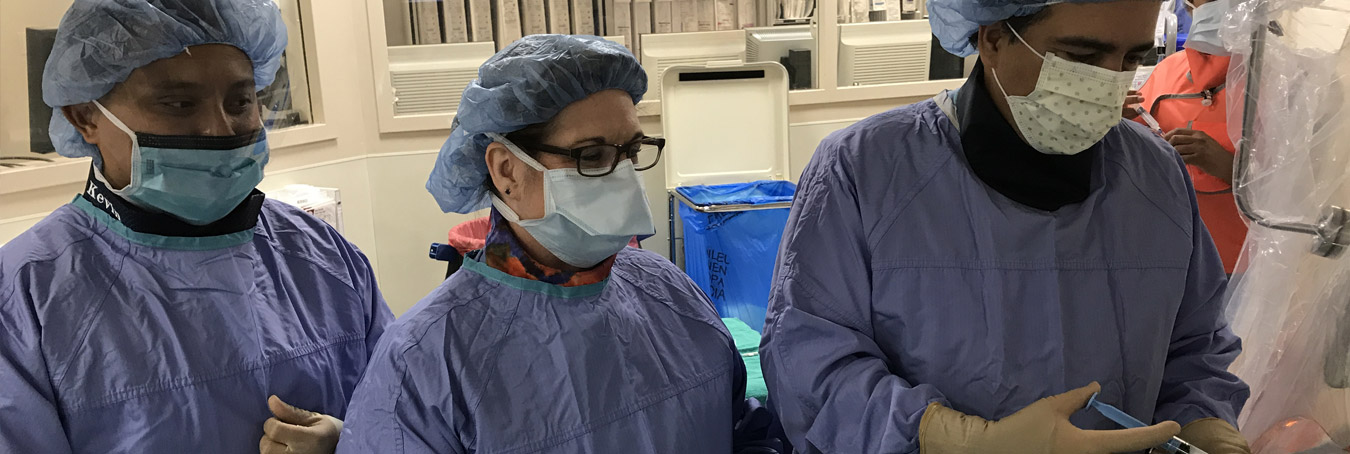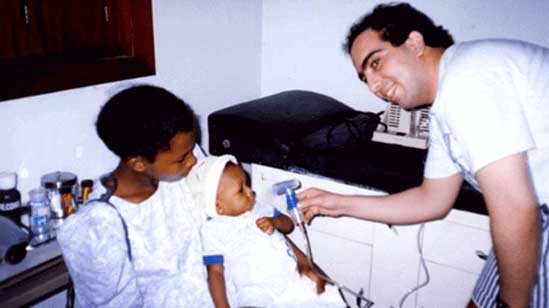Living with an ICD
ICDs are well protected. Most machines and devices will not interfere. Microwave ovens and other appliances should not cause problems. Neither should computers, hair dryers, power tools, radios, televisions, electric blankets, or cars. Signals from a few devices might cause problems with your ICD, though. Take care to avoid these.

Wearing a cell phone headset helps prevent interference with the ICD's signals.
Signals That Cause Problems
To protect your ICD, take special precautions around:
-
Cellular phones. Always carry a cell phone on the side opposite your ICD and at least 6 inches away from it. While using a cell phone, wear a headset or hold the phone to the ear opposite your ICD.
-
Electromagnetic anti-theft systems. These are often near entrances or exits in stores. Walking past one is okay, but avoid standing near or leaning against one.
-
Strong electrical fields. These can be caused by radio transmitting towers and heavy-duty electrical equipment (such as arc welders). A running engine also produces an electrical field. It's okay to ride in a car, but avoid leaning over the open hood of a running car.
-
Very strong magnets. Never have an MRI (a medical test that uses magnets). Magnets in big speakers (such as on a stereo or at a concert) and in hand-held security wands (such as those used at airports) can cause problems if they come too close to the ICD.

If a Signal Interferes
If it's near one of the signals described above, the ICD could turn off or its settings could reset. You could even get a shock. If you think you were exposed to a signal like this, call your doctor and explain what happened.
Carry an ID Card
You'll be given a temporary ID card when you get your ICD. The permanent card will be mailed to you in about 6 weeks. Show this card to any doctor, dentist, or other medical professional you visit. Also show it to guards at the airport. This way, they know to follow special procedures that prevent the security wand from interfering with your ICD.
Publication Source: FDA Heart Health Online
Publication Source: Heart Rhythm Society
Online Source: FDA Heart Health Online
Online Source: Heart Rhythm Society
Date Last Reviewed: 2007-01-15T00:00:00-07:00
Date Last Modified: 2005-02-01T00:00:00-07:00









 Click Here for More Details
Click Here for More Details







